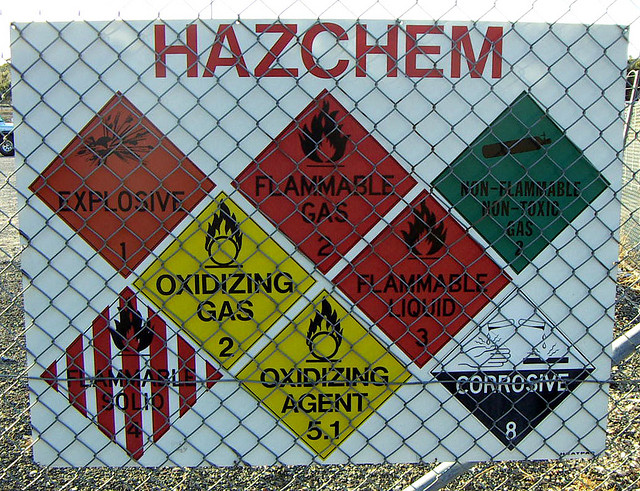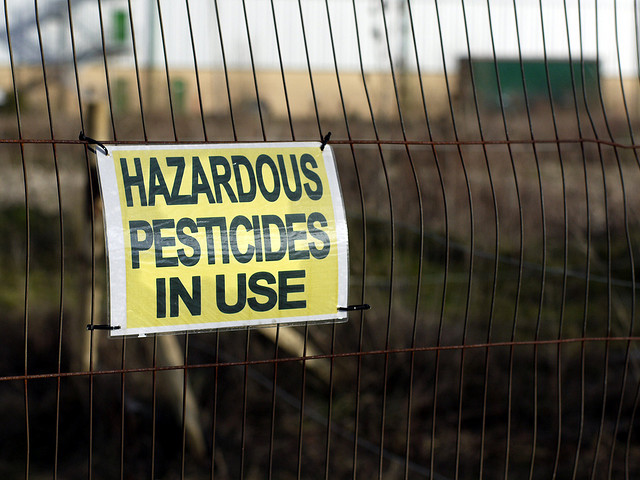In 2007, Congress added a provision to the Department of Homeland Security (DHS) budget, directing DHS to create a program to identify chemicals that might be tempting targets for terrorists, and to require facility that handle sufficiently large quantities of these chemicals of interest to establish security programs subject to DHS oversight (“Section 550”). DHS responded to Section 550 by issuing Chemical Facility Anti-terrorism Standards (CFATS) rules, requiring compliance to begin in 2008.
Audit, Compliance and Risk Blog
Jon Elliott
Recent Posts
Congress Updates Chemical Facility Anti-Terrorism Standards
Posted by Jon Elliott on Mon, Feb 02, 2015
Tags: Corporate Governance, Business & Legal, Employer Best Practices, Health & Safety, Environmental risks, Environmental, Hazcom, Workplace violence
After a facility determines it has generated hazardous waste, it must determine how to manage that waste in compliance with the federal Resource Conservation and Recovery Act of 1976 (RCRA), regulations issued by the US Environmental Protection Agency (EPA), and their state equivalents. (I recently wrote about hazardous waste determination, here and here).
Tags: Corporate Governance, Health & Safety, Environmental, EHS, EPA, Hazcom, RCRA
EPA Proposes Stricter Standards For Ground Level Ozone in Ambient Air
Posted by Jon Elliott on Mon, Jan 19, 2015
The Clean Air Act (CAA) requires the Environmental Protection Agency (EPA) to create a list of air pollutants based on emissions that cause or contribute to air pollution that may reasonably be anticipated to endanger public health or welfare. EPA also sets air quality criteria for acceptable concentrations in ambient air, referred to as National Ambient Air Quality Standards (NAAQS).
Tags: Environmental risks, Environmental, EPA, Greenhouse Gas, ghg, climate change
To Frack Or Not To Frack? California and New York Provide Opposite Answers
Posted by Jon Elliott on Mon, Dec 22, 2014
Many readers will know that political and legal regulatory developments have lagged the technical developments in hydraulic fracturing and other enhanced oil and gas recovery techniques – “fracking.” Some jurisdictions focus on the jobs and taxes that result from resource extraction, while others focus on the potential environmental hazards. As 2015 begins, we find California and New York – which typically agree on significant environmental policy questions – adopting opposite responses.
Tags: Business & Legal, Environmental risks, EPA, ghg, fracking, hydraulic fracking
Chemical Safety Board Recommends Better Process Safety Management
Posted by Jon Elliott on Mon, Dec 15, 2014
Within the U.S., most chemical safety requirements are imposed by the Occupational Safety and Health Administration OSHA) and the Environmental Protection Agency (EPA). For example, OSHA (or delegated state agencies) administers a Process Safety Management (PSM) Standard, while EPA (or delegated state agencies) administers the Accidental Release Prevention (ARP) regulation. In addition to these sets of regulators, however, Congress has created a national agency to conduct independent investigations of major chemical accidents, and to issue accident-specific findings and specific or general recommendations for improved chemical handling and regulation. This agency’s formal name is the Chemical Safety and Hazard Investigation Board—which usually refers to itself as the Chemical Safety Board or CSB.
Tags: Corporate Governance, Business & Legal, Health & Safety, OSHA, Environmental risks, Environmental, EPA, Hazcom
Waste Identification Part II: Is My “Solid” “Waste” A “Hazardous Waste”?
Posted by Jon Elliott on Mon, Dec 08, 2014
Federal and state laws govern “hazardous wastes”—the federal law is commonly called RCRA, after the Resource Conservation and Recovery Act of 1976. However, RCRA itself was enacted as an expansion of the prior Solid Waste Disposal Act of 1965, and requirements for both solid and hazardous wastes have been revised many times in recent decades. The US Environmental Protection Agency (EPA) administers these requirements nationally, delegating many provisions to individual states that qualify for authorization to assume regulatory roles.
Tags: Business & Legal, Health & Safety, Environmental risks, Environmental, EHS, Hazcom
Waste Identification Part I: Is My Material A “Solid” “Waste”?
Posted by Jon Elliott on Mon, Dec 01, 2014
Federal and state laws govern “hazardous wastes”—the federal law is commonly called RCRA, after the Resource Conservation and Recovery Act of 1976. However, RCRA itself was enacted as an expansion of the prior Solid Waste Disposal Act (SWDA) of 1965, and requirements for both solid and hazardous wastes have been revised many times in recent decades. The US Environmental Protection Agency (EPA) administers these requirements nationally, delegating many provisions to individual states that qualify for authorization to assume regulatory roles.
Tags: Business & Legal, Health & Safety, Environmental risks, Environmental, EPA, Hazcom, RCRA
U.S. And China Try To Change The Climate Change Conversation
Posted by Jon Elliott on Wed, Nov 26, 2014
On November 12, U.S. President Barack Obama and Chinese President Xi Jinping announced a bilateral agreement to cut greenhouse gas (GHG) emissions. Since these countries are the two biggest economies and largest emitters of GHGs – and are in a period when they seem to disagree about almost everything – this agreement has substantial symbolic value. But will it have much practical value?
Tags: Business & Legal, Environmental risks, Environmental, Greenhouse Gas, ghg
U.S. And China Try To Change The Climate Change Conversation
Posted by Jon Elliott on Wed, Nov 26, 2014
On November 12, U.S. President Barack Obama and Chinese President Xi Jinping announced a bilateral agreement to cut greenhouse gas (GHG) emissions. Since these countries are the two biggest economies and largest emitters of GHGs – and are in a period when they seem to disagree about almost everything – this agreement has substantial symbolic value. But will it have much practical value?
Read MoreStrategic planners around the world are preparing “climate change adaptation plans,” designed to identify their organization’s key activities and missions, evaluate how climate change might affect them, and develop organizational changes designed to anticipate and adapt in ways that preserve the organization’s performance. On October 31, the US Environmental Protection Agency (EPA) issued its own Climate Change Adaptation Plan. EPA’s divisions (Water, Air and Radiation, etc.) and 10 regional offices also issued plans covering their activities. These Plans provides a collective model for multi-level organizational plans, and also tell organizations in the US what help to expect from EPA when they plan for their own adaptations to climate change.
Tags: Corporate Governance, Business & Legal, Environmental risks, Environmental, EHS, EPA, Greenhouse Gas, climate change









